
Imagine waking up in a cold dark room with no windows. Imagine not knowing where you are or how you got there. Imagine not remembering your own name.
Now, you're given a new name, a new set of clothes, and, for induction, you're raped. The objective, of course, is to escape.
That's the bleak premise the role-playing game Missing: Game for a Cause, by Leena Kejriwal, establishes. It's the story of many young girls trafficked into the sex trade who disappear overnight and become a mere statistic on a missing persons list.
Not child's play
We played the game, disturbing as it was, and quickly went from wanting the put the phone away due to discomfort to desperately wanting the help the protagonist, Champa, escape the brothel.
The player plays as Champa and he/she must play through all the traumatic experiences she has in the story. It can be harrowing, feel voyeuristic, and, as in the case of my colleague, make you very angry.
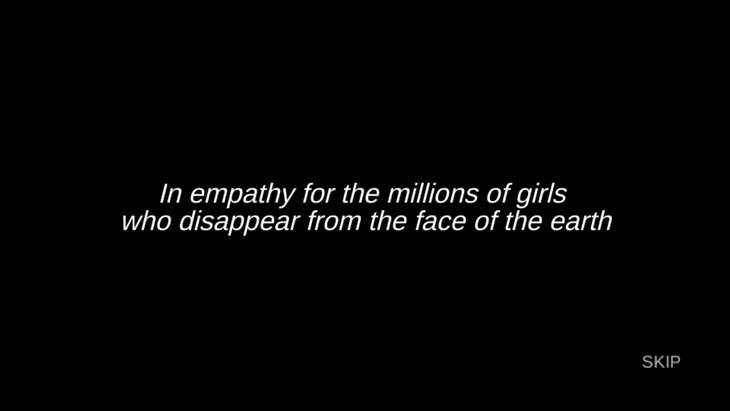
SPOILERS (Please continue reading from the next subhead if you're looking to avoid spoilers)
Champa must solicit customers by drawing their attention. She must haggle for the right rate, sometimes using food and alcohol for coercion. Each potential customer, when clicked on, shows how much money and interest they have.
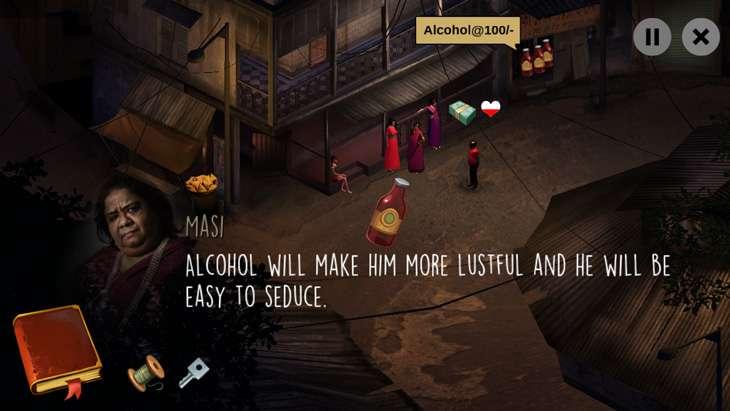
If they're rich and bored, Champa must give them alcohol to change their minds. After this, follows the sex that, fortunately, we don't get to see.
The only time one sees the inside of Champa's bedroom for customers is when her rapist Shonty brings a young boy to her. Interestingly, the tables turn when the boy confesses that he was worried she would sexually assault him.
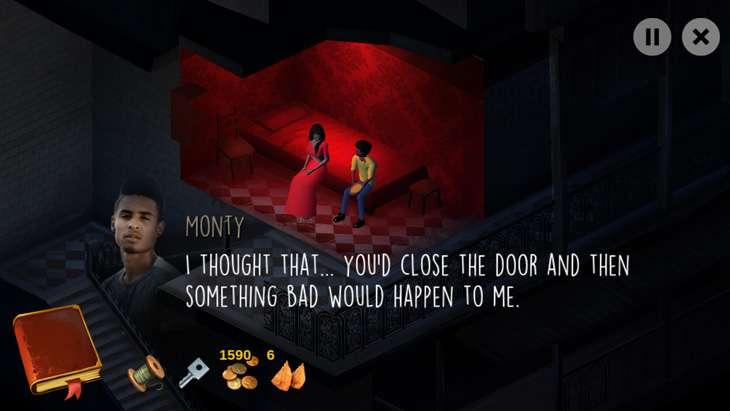
Meanwhile, she's constantly trying to escape. Every time she gets caught, Shonty brutalises her, so it falls on the player to ensure her safe return.
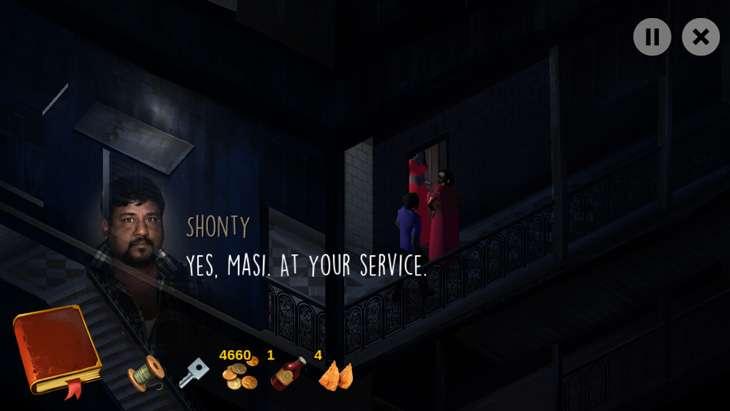
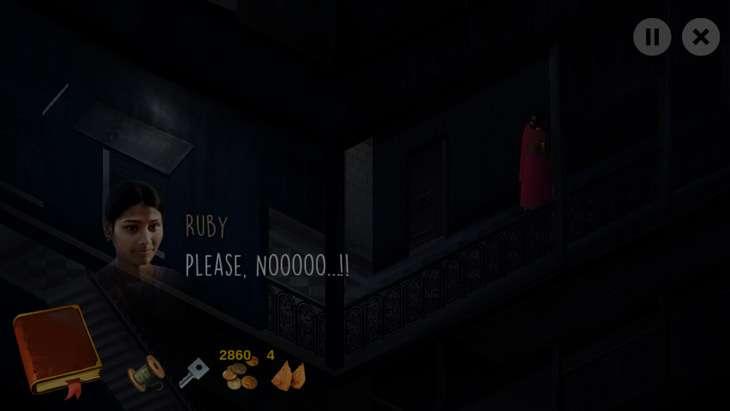
The game unfolds with clues that she unravels by applying certain objects or tactics. She finally gets help by calling 1098, which by no coincidence is the CHILDLINE helpline number.
The significance of all these scenes is that it seems frighteningly real. And for many Champas out there, it is.
The discomfort at offering alcohol with sex, at knowing Champa will get raped because you couldn't help her escape, at how she gets thrashed when she doesn't meet the daily target, are what make the game worth finishing.
Champa's fate feels like a responsibility, a responsibility we don't often think of. And the discomfort is what gets one thinking about that responsibility.
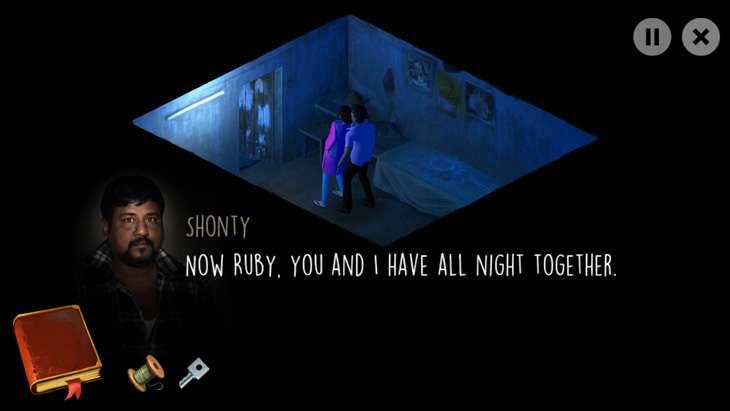
Leena Kejriwal's intention
Kejriwal's website Save Missing Girls is part of her public art project MISSING - as is the game - which focuses on the 3 million girls 'sold every year'.
"MISSING comprises larger-than-life black silhouettes of young girls placed against the urban skyline, which look like sharp, black, cut out of the sky holes into which millions of girls disappear from the face of the earth into the dark world of prostitution," the website reads.
And that's where she got the idea for the game. Catch spoke to Kejriwal and she talked to us about the discomfort while playing, the game itself, and the award it recently won.
DS: Your game is called Missing: Game for a Cause. But how does a game serve to fight against sex trafficking?
LK: Missing is a much bigger campaign and it doesn't start with the game. It's a public art awareness initiative that's been going on for two years. 'Game for a Cause' comes from its genre.
There are so many apps called 'Missing' that we had to add this so that people know exactly which one to go to. 'Game for a Cause' also gives them an idea that there's a cause, so you wonder what it means.
DS: The takeaway from a game is ultimately entertainment. Isn't that problematic for such a serious theme?
LK: There's a paradox. You get under the skin of the issue. You've never played as a girl right? Usually, you're always a boy, always on the other side in this kind of space. Or you've never entered a space like this.
So here, I'm [putting you in] these uncomfortable shoes and making you play the life of a girl. So actually you're thrown into a very uncomfortable space.
DS: And that's your objective, the discomfort?
LK: Yeah. I want to make you uncomfortable.
The #MissingGame has gone #global with downloads from over 10 countries including India, USA and UK. #missingirls #indiegameoftheyear pic.twitter.com/ZGqTv87QOm
— MISSING (@MISSINGIRLS) November 19, 2016
DS: Have you referred to any real-life incidents, stories to base the characters of your game on?
LK: Yes, lots. My campaign SaveMissingGirls.com has been archival to the whole project. I've been working with the issue of child trafficking for the last 10 years.
My public art project started 2 years back. The Missing game is just one part of it. It has that much more impact, so I thought a game would be the right thing to work on.
I found the right developer (Satyajit) and we went to red light areas, I took him to villages, took him to meet trafficked survivors, sex workers, basically spaces where he had never been to in his life. From there we made our first storyline for what we thought we'll do, and that's what we've been working on for the past three months.
DS: Are you taking this game forward, maybe with new storylines?
LK: Well, currently it's just this but given the kind of positive feedback, I would like to explore further. At the moment I'm more involved with the installations going up but I can already see that the game demands more attention.
It also makes a foray into another community which I'm loving tapping into. So I think more will come out of it.
DS: What do you mean 'another community'?
LK: The gaming community. We're actually [working on] a PC version which can be played in high-schools. This is so that people would play and we'd have questions after, which could lead us to do at least some data collection and help us study how people play the game.
The #Missing #GameForACause has been selected as the Best #IndieGame of the Year at @NASSCOMGDC
— MISSING (@MISSINGIRLS) November 15, 2016
Download game: https://t.co/0oFPPWB4O5 pic.twitter.com/PmtYSo3be9
DS: Tell us about the recent award you won at the NASSCOM event -- 'Indie Game of the Year'.
LK: We didn't expect to. We wanted to do a playable game, a game for a cause, bring some awareness. But now winning this seems to be taking it to another level.
It does tell me that I can do much more with [the game], try it in a bigger arena, and for more awareness.
DS: Isn't that interesting though? Since your game is more subject oriented than gaming oriented.
LK: That's what I'm saying, it was totally overwhelming.
DS: A couple of observations. None of the dialogues that play out in the game are spoken, they're all typed out in English...
LK: We'll do a vernacular version soon. The Bengali version will be coming out soon, for schools, which we will route through NGOs. And we'll translate it into 13 vernacular languages soon enough.
DS: The men in lungis always have the least to pay, as opposed to men in pants/dhotis in your game. Also, Meena, the only other prostitute our protagonist interacts with appears to be northeast Indian. Isn't this cultural stereotyping?
LK: The men in lungis? Not really. Um, I don't know how you got that. It's nothing to do with the lungi or the pants, it's just that we've created all these different types of men who actually roam around in streets.
Meena is northeastern because the northeastern community is huge in the red light areas. Also, most girls from Nepal have come into the Indian red light. I'm not trying to stereotype, I'm trying to address it. Because it is true.
It's a very sad thing that girls from the northeast and Nepal are trafficked. These areas are poorer and more accessible and easily traffickable.
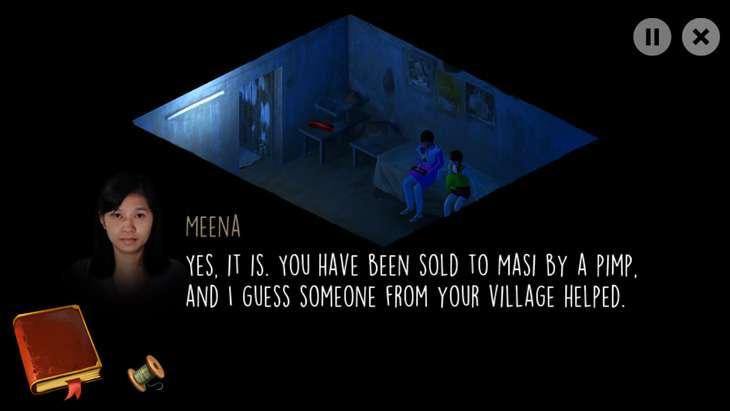
DS: At the beginning of the game, Ruby/Champa is told by Masi that her parents won't take her back because she's in a brothel, to which she says she's "pure". Later, she gets raped. Doesn't this suggest that only virgin/untouched women should be accepted by their families, give out a wrong message?
LK: No, it's not a wrong message. It's the truth.
All these stories... I work with these people. What's really a blessing is when your parents accept you back. But a whole lot of them are not accepted back just because they have been violated. So that's why for a girl her 'purity' becomes important.
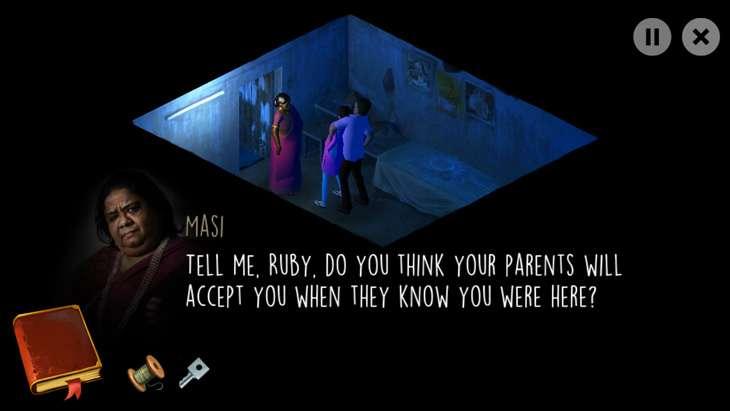
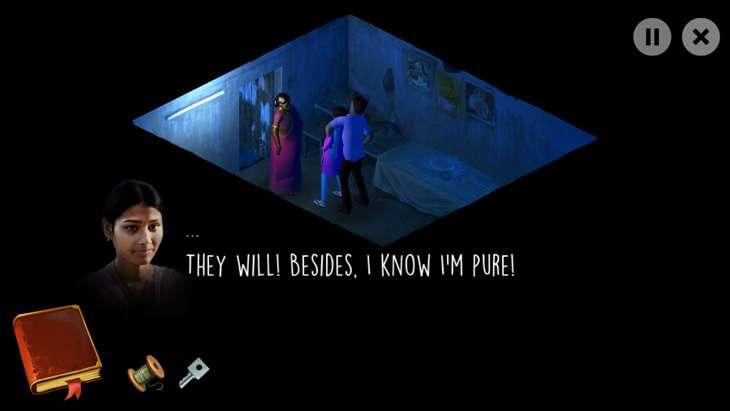
LK: It is a word that's very difficult to translate. Pure, impure. Virgin, non-virgin. These dialogues are very real.
Even after [the character in the game] is violated it's not like she stops trying to escape, right? This is also [a comment] on those who don't accept girls that they think impure.
First published: 22 November 2016, 15:35 IST







![BJP's Kapil Mishra recreates Shankar Mahadevan’s ‘Breathless’ song to highlight Delhi pollution [WATCH] BJP's Kapil Mishra recreates Shankar Mahadevan’s ‘Breathless’ song to highlight Delhi pollution [WATCH]](https://images.catchnews.com/upload/2022/11/03/kapil-mishra_240884_300x172.png)

![Anupam Kher shares pictures of his toned body on 67th birthday [MUST SEE] Anupam Kher shares pictures of his toned body on 67th birthday [MUST SEE]](https://images.catchnews.com/upload/2022/03/07/Anupam_kher_231145_300x172.jpg)






